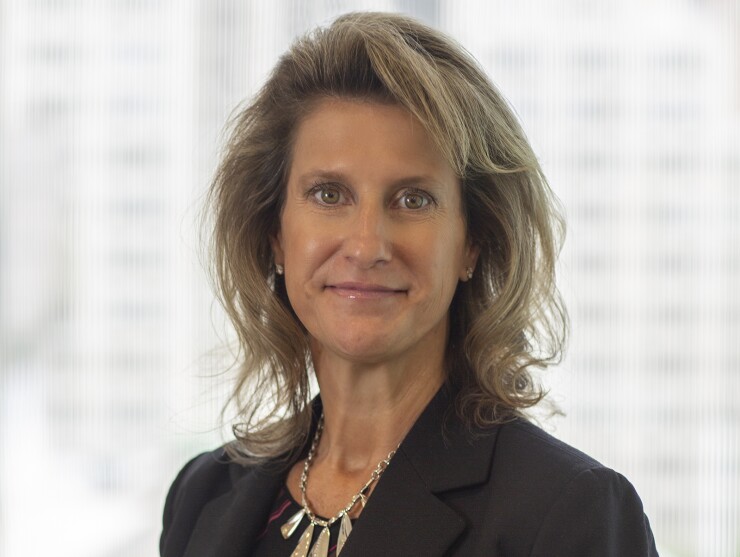Executive Vice President, Chief Operating Officer
Around the world, a growing urgency to limit the worst impacts of climate change has heightened public scrutiny of corporations’ environmental impact.

For many banks, including the London-based HSBC, that has meant taking a closer look at their business operations and figuring out how to reduce their own carbon emissions. As a part of its broader sustainability plan, HSBC has pledged to achieve net zero carbon emissions, from both its operations and financing activities, by 2030.
Jennifer Strybel, the chief operating officer at HSBC USA, stepped up to take accountability for those efforts in the United States by serving as an executive sponsor for the program.
“At HSBC, we’re very committed to the transition to a global net zero economy, not just by playing our part, but by helping to lead it,” Strybel said. “We’re doing this across the bank — in our operations and supply chain — and by supporting our customers in their own sustainability journeys.”
HSBC’s corporate banking business also now offers a new green deposit product and other sustainability-linked financial products, driven by demand from corporate clients with their own environmental goals to meet.
As a member of HSBC’s U.S. executive committee, Strybel plays a key role in strategic business decisions to streamline its operations. Recently, that’s included the London banking giant’s ongoing exit from retail banking in the U.S. In May, HSBC said it would sell its East Coast retail business to Citizens Financial Group in Providence, Rhode Island, while Cathay Bank in Los Angeles is buying its West Coast retail business. (HSBC is keeping private banking, but jettisoning the mass-market part of the retail operation.)
Strybel has overseen the launch of new technologies to help employees work remotely or maintain physical distance while in the office. The delta variant has complicated HSBC’s return-to-office plans and is likely the reason employees have not come back en masse yet. But Strybel said it may also be because those technologies are working exactly as intended.
“I think we’ve seen our employees adapt to a new environment of hybrid working and truly leveraging the office for critical interactions like team meetings, training, critical project implementations versus checking emails and writing reports,” she said.





